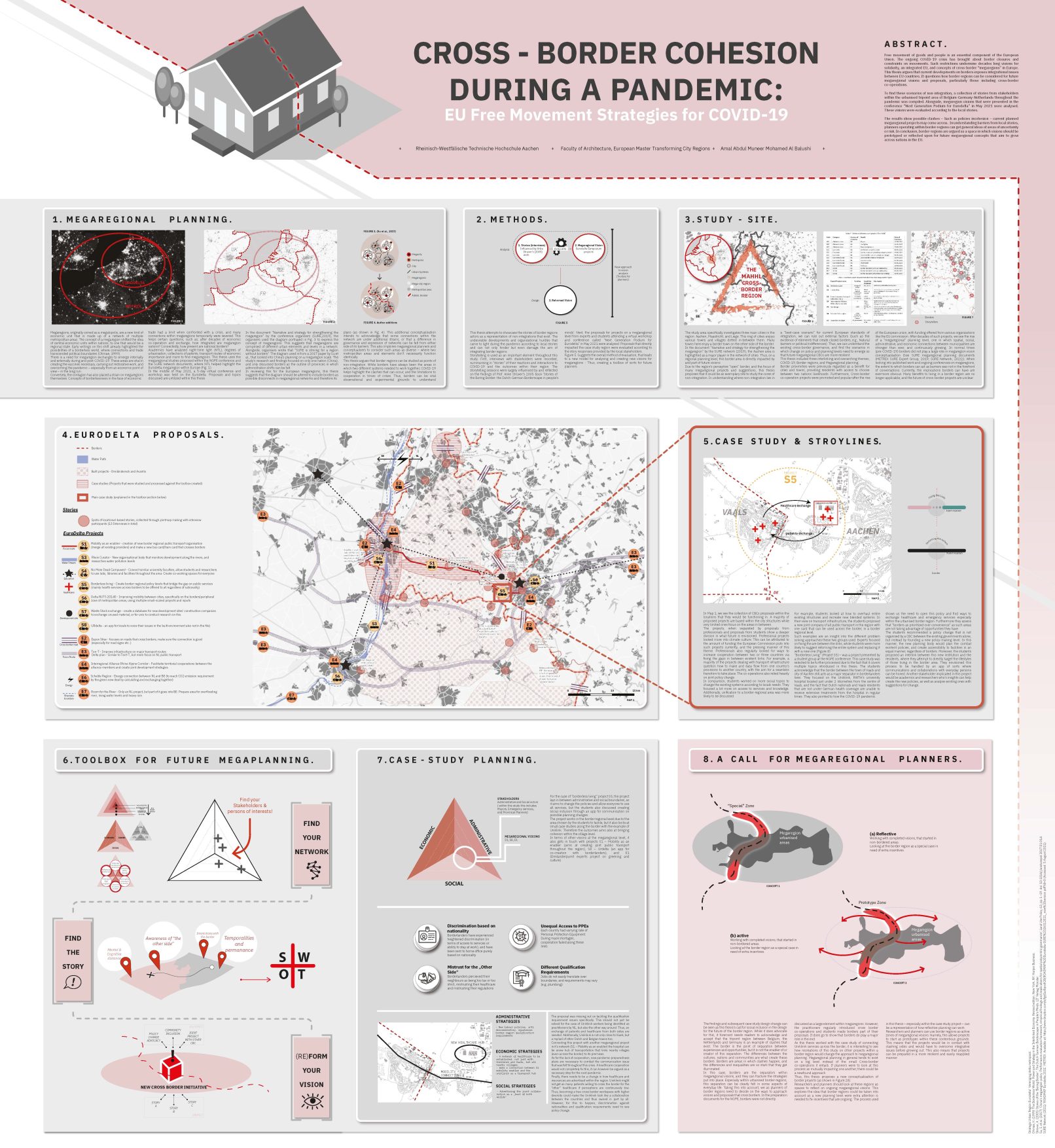Cross-Border Cohesion During a Pandemic
Master’s thesis by Amal Abdul Muneer Mohamed Al Balushi
Supervised by:
Prof. Dipl.-Ing. Christa Reicher, Chair of Urban Design and Institute for Urban Design and European Urbanism
Prof. Dr phil. Carmella Pfaffenbach, Head of the Department of Cultural Geography
Prof. Dr – Ing. Frank Lohrberg, Chair of Landscape Architecture
Thesis Abstract
Free movement of goods and people is an essential component of the European Union. The ongoing COVID-19 crisis has brought about border closures and constraints on movements. Such restrictions undermine decades long visions for solidarity, an integrated EU and concepts of cross-border “megaregions” in Europe. This thesis argues that current developments on borders exposes integrational issues between EU countries. It questions how border-regions can be considered for future megaregional visions and proposals, particularly those including cross-border co-operations.
To find these scenarios of non-integration, a collection of stories from stakeholders within the urbanised tripoint area of Belgium-Germany-Netherlands throughout the pandemic was compiled. Alongside, megaregion visions that were presented in the conference “Next Generation Podium for Eurodelta” in May 2021 were analysed. These visions were evaluated according to the local stories.
The results show possible clashes – such as policies incohesion – current planned megaregional projects may come across. In understanding barriers from local stories, planners operating within border-regions can get general ideas of areas of uncertainty or risk. In conclusion, border-regions are argued as a space in which visions should be prototyped or reflected upon for future megaregional concepts that aim to grow across nations in the EU.
Keywords:
Cross-border co-operation, Megaregional visions, Pandemic planning, Cognitive boundaries, Storytelling, Europeanisation.
